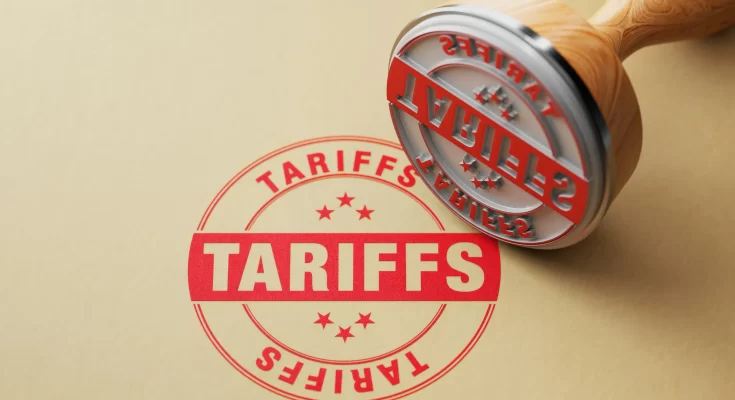- Tariff surge raises alarm over Agoa future, export competitiveness, and tax implication
South Africa Faces 30% U.S. Tariff as Trade Tensions Escalate. South African exports to the United States will now face a steep 30% tariff, effective August 7, 2025, following a policy announcement by U.S. President Donald Trump.
This rate, which is currently the highest imposed on any sub-Saharan African nation, marks a major disruption in South Africa-U.S. trade relations.
Economic Blow for a Key Trading Partner
The announcement has come as a shock to Pretoria, given that the U.S. remains South Africa’s second-largest bilateral trading partner.
Several African countries, including Nigeria, Ghana, Lesotho, and Zimbabwe, have been assigned a lower 15% tariff on their exports, while Kenya and Ethiopia will face a 10% tariff—a move some analysts say reflects Washington’s recalibration of trade alliances on the continent.
For North African countries, Tunisia was hit with a 25% tariff, while Algeria and Libya join South Africa in the 30% bracket.
End of Duty-Free Access Under Agoa?
Until now, South Africa’s key sectors—including automobile, agriculture, and textiles—had enjoyed duty-free access under the African Growth and Opportunity Act (Agoa), a U.S. policy introduced in 2000 to promote trade with African countries.
While Agoa is technically up for review this September, the newly imposed tariffs signal what many in the trade policy space fear could be the effective end of its benefits for South Africa.
Reciprocal Measures and Tax Revenue Pressure
The South African government has indicated it is preparing a support package for vulnerable exporters, even as it continues negotiations with Washington.
President Cyril Ramaphosa said, “We have submitted a framework deal and will continue engagement with the U.S.,” while confirming that certain items—such as copper, semiconductors, critical minerals, pharmaceuticals, and energy products—may be exempt from the tariff hike.
From a tax policy perspective, analysts say this development could undermine South Africa’s export-linked VAT collections and corporate income tax revenue—especially from manufacturing and agro-processing sectors.
Trump Cites ‘Bad Policies’; Cuts Aid
President Trump, who has frequently clashed with Ramaphosa’s administration, claimed the tariffs are a response to what he called “very bad policies” in South Africa. He has also suspended U.S. aid to the country.
Relations between the two nations have continued to sour, with Trump stating he may skip the upcoming G20 Summit in Johannesburg.
Wine, Textiles Among the Hardest Hit
The South African wine industry, a major Agoa beneficiary, expressed concern that the tariffs place them at a “severe disadvantage” compared to competitors from countries with lower or no tariffs.
In a statement, South Africa Wine called for urgent resolution, warning of long-term risks to trade, investment, and jobs.
South Africa Enhances Tax Accessibility with Sign Language Services
Regional Reactions: Mixed Sentiment
Other African countries offered varied responses.
- Kenya welcomed the 10% rate, describing it as “fair” and expressing commitment to deepen U.S. trade ties.
- Lesotho’s Trade Minister, Mokhethi Shelile, voiced concern over the 15% rate, especially for the country’s garment exports, which include jeans and sportswear produced for major U.S. brands like Levi’s and Walmart.
Lesotho’s TZICC garments factory noted that even at 15%, “our buyers and orders are still affected.”
The sector, already fragile due to uncertainties around Agoa, has seen factory closures and job losses, reinforcing concerns about the broader economic fallout.
Policy Analysts Warn of Tax Fallout
Tax commentators argue that the tariff shock may lead to losses in customs duty revenues, reduced export VAT credits, and pressure on business income tax receipts—particularly for sectors dependent on U.S. markets.
This development also raises questions about South Africa’s export tax policy resilience in the face of shifting global trade dynamics.




